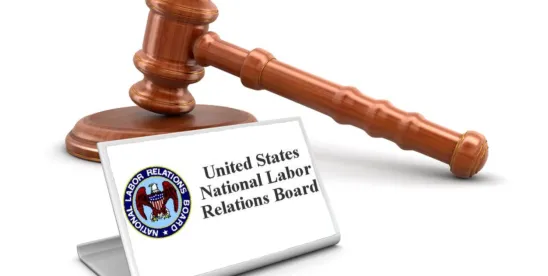On August 1, 2024, the National Labor Relations Board is set to roll out its Fair Choice-Employee Voice Rule, which includes three major changes:
Blocking Charge Policy: The Regional Director would have the authority to delay a representation election if there are allegations of an unfair labor practice that could interfere with employee “free choice.” This restores the Board’s pre-2020 practice, reversing the 2020 rule that required elections to proceed even in a “tainted environment.” The sole dissenter, Member Kaplan, noted this revived Rule may see unproved accusations directed against management resulting in a blocking charge. If implemented, the proposed rule would permit unions to postpone a pending election by filing unfair labor practice charges, alleging that employees cannot make a free choice under claimed coercive conditions. This tactic would allow a union to delay an election it expects to lose, giving it additional time to campaign. It could also hinder decertification petitions from employees seeking to remove current union representation.
Voluntary Recognition of a Union: The Board also proposes reinstating the previous “voluntary recognition bar,” which prevents an employer that has voluntarily recognized a union from withdrawing that recognition, as well as barring employees from petitioning for decertification for a period “no less than six months, but no more than one year” from the date of recognition. Currently, when an employer voluntarily recognizes a union representing a majority of its workers, there is a mandatory 45-day “waiting” period during which a minority of employees can file a petition for a decertification election. This allows those who do not support union recognition to request an official election to challenge the union’s status as the representative of the workforce. In support of this proposed change, the Board argues that there is no evidence suggesting voluntary recognition is problematic, and that the current mandatory waiting period hampers employee free choice and interferes with effective collective bargaining.
Construction Industry Bargaining Relationships: Federal law has special rules relating to unions in the construction industry. Currently, there must be “positive evidence” presented by the union to show majority support, in addition to contract language between the employer and union suggesting that a union has sufficient showing of support, to secure full recognition. The new Rule would revert to the “contract language alone” standard and would also reinstate a six-month limitation period for election petitions challenging a construction employer’s voluntary recognition of a union. Detailed language within a collective bargaining agreement would be considered sufficient evidence that voluntary recognition was appropriately secured.
The effective date of the new rule is September 30, and the rule will only be applied to cases filed after the effective date. Court challenges to the Final Rule are anticipated.







 />i
/>i

